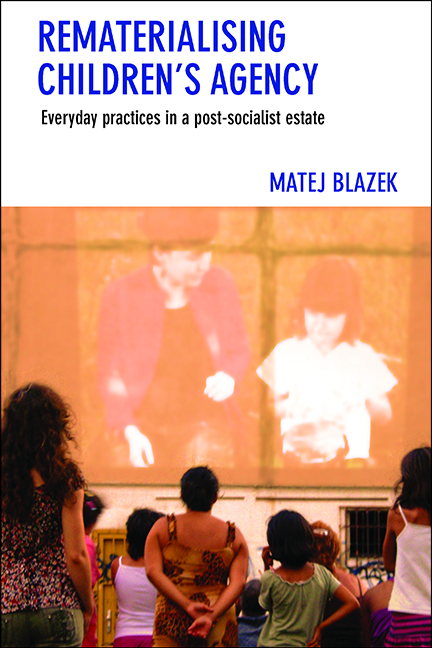seven - Things
Published online by Cambridge University Press: 01 September 2022
Summary
Today, I was at the ‘Boys Group’ with a new colleague who suggested that boys could water-paint their faces. It went really well, boys, mostly 10-year-olds and younger, managed to help themselves, so we were just facilitating and making sure there would be no harm. I made some tea that boys mostly spilled while trying to pour it into their cups.
The boys had fun and the place was really wet, when Marcel (6), with yellow lion-features painted on his face by Roman (10) and followed by Samuel (6) and Norbert (7), roared at me and with a jump he made a half-hug half-bite on my leg, that is, my black trousers. As the paint was still wet, I saw a yellow imprint on my thigh and I had to go and wash it immediately. Within a few seconds, along with the fact that we had only 15 minutes left for the activities and the Club had to be cleaned, the mood changed. The boys calmed down, apologised for dirtying my trousers, and hastily helped to clean and dry the Club. At least some did. Samuel was afraid of coming home painted, so he washed his face furiously and after a few minutes he left the Club without helping the others. (Extract from fieldnotes, June 2009)
One of the key themes in Chapter Six was the importance of children’s practices being located in their bodies. The story with young boys in the Club suggests that the body is not the only material resource for practices. Here, objects such as face-paint and bowls of water acted as fundamental material extensions to what children did.
Considering that ‘our lives are characterised by innumerable encounters with objects’ (Woodward, 2007, p.vi) and the constant presence of a vast array of material objects in children’s lives, this chapter explores what kind of extensions to children’s agency emerge through children’s encounters with small mundane objects and how children’s practices are affected by the presence of ‘things’, but also what the processes and practices through which ‘things’ come to matter in children’s lives are with respect to differences or similarities among individual children and groups of children.
- Type
- Chapter
- Information
- Rematerialising Children's AgencyEveryday Practices in a Post-Socialist Estate, pp. 119 - 138Publisher: Bristol University PressPrint publication year: 2015



